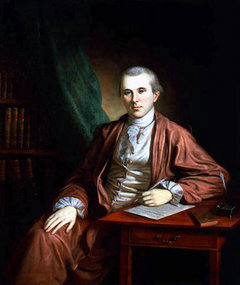 And we know that for those who love God all things work together for good, for those who are called according to his purpose. For those whom he foreknew he also predestined to be conformed to the image of his Son, in order that he might be the firstborn among many brothers. And those whom he predestined he also called, and those whom he called he also justified, and those whom he justified he also glorified. (Romans 8:28-30 ESV)
And we know that for those who love God all things work together for good, for those who are called according to his purpose. For those whom he foreknew he also predestined to be conformed to the image of his Son, in order that he might be the firstborn among many brothers. And those whom he predestined he also called, and those whom he called he also justified, and those whom he justified he also glorified. (Romans 8:28-30 ESV)
If you have ever heard a conversation on free will, what did you think about it? Do you think human beings have free will? If you were asked to define “free will”, what would you say? The question of free will is very important when you try to understand salvation.
Martin Luther wrote that; “If anyone ascribes salvation to the will, even in the least, he knows nothing of grace and has not understood Jesus Christ aright.”
Man is born with a self-centered heart. We want to do things our way. We wish to be “the masters of our fate’ and “the captains of our soul”. (William E. Henley)
So, if man has free will and God has free will, what does it matter anyway? Because a man has free will, can he do anything he chooses? Suppose a man chooses not to drink water or any form of liquid. What will be the result? He will die. A man may choose to drink water or not, but if he chooses “not” – he will die. A man’s choices are limited by his nature. Therefore, his free will is limited by the nature of who or what he is. Adam was the federal head and perfect moral representative of the human race. When Adam sinned, we all sinned. All die in him (First Adam), but those who belong to Christ (Second Adam) are made alive in Him.
Now please read this closely: God has free will, but even His will is limited by His nature. God is pure, holy, and cannot sin. This is what makes God –God – along with omnipotence, omniscience, omnipresence and so forth. God makes choices according to His holy nature. Man makes choices based on his sin nature inherited from the fall.
This is the problem with saying, “By my free will, I have decided for Christ.” Man’s will is spiritually dead according to its nature and so the inclination of his heart is to choose to go on sinning. Man is free to choose, but he is not free to choose not to sin. Here we need the power of rebirth through the Holy Spirit. Then we have the ability to choose Christ. Jesus says in John 6:44, “No one can come to me unless the Father who sent me draws him. And I will raise him up on the last day.” No man is able to come to Christ without His Divine intervention. It is the works of the Holy Spirit to change the inclination of men’s hearts and make God’s elect willing to come.
We are “free” to do what we want to do, but we are bound in what we want by our evil nature and desires. We cannot use our will to shape our natures, but rather, our natures determine how we will use our wills. We are only free when the Son sets us free. (John 8:36)
Filed under: Bible, Christianity, Faith, Grace, Holy Spirit, Jesus Christ, Prayer, Preaching, Theology | Tagged: Adam, Christ, God, HolySpirit, Jesus, Jesus Christ, Martin Luther, Sin | 2 Comments »








































































